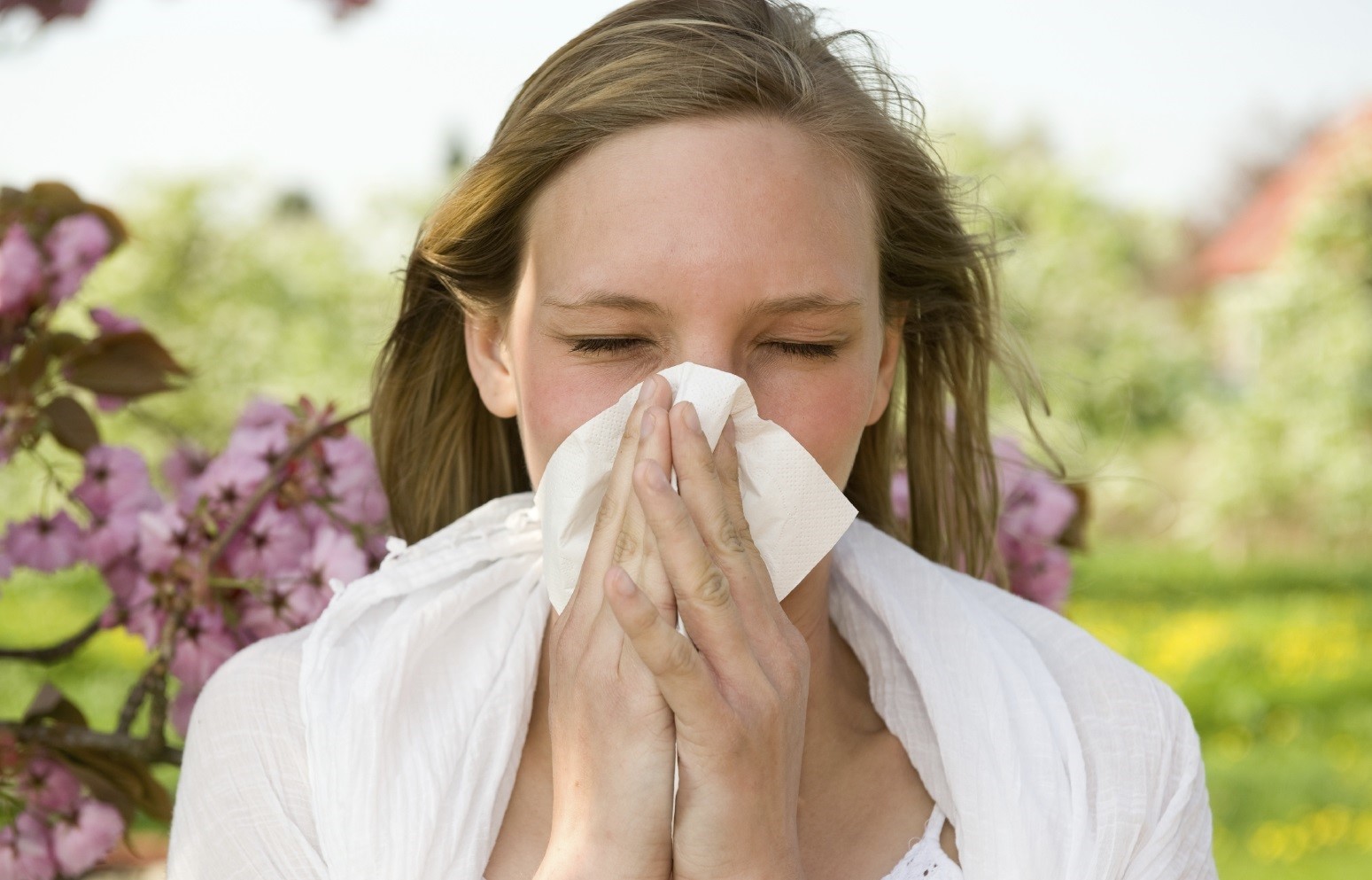
Yes, it has, honestly. Saying that, though, the slate-grey clouds and persistent rain might make it somewhat tricky to spot.
Warmer weather and longer days mean more time to enjoy the great outdoors, but they also herald the arrival of seasonal allergies.
From sneezes to sore throats, pollen problems to eye complaints, there is a long list that millions of us must contend with.
Hay fever affects around one in four people in the UK but sneezes, itchy eyes and lethargy can affect all of us at one time or another.
Sarah Farrant, Optometrist and Dry Eye Specialist explains: “Throughout the year, our eyes are subjected to a lot of environmental changes, and spring is often when we notice having itchy, red or dry eyes the most.
“When pollen and dust is swept into our eyes, we create reflex tears to flush out the unwanted pollutants, but this also reduces the quality of our tears, meaning our eyes still feel dry and sore — it’s a vicious cycle.
“Seasonal allergies, such as hay fever, can affect our confidence and our quality of life significantly, but luckily, there are lots of things that we can do to protect our eyes.”
Here are Sarah’s Top 10 tips to keep hay fever at bay.
KEEP ’EM UNDER WRAPS
Wearing wraparound sunglasses can reduce the amount of pollen or spores that enter your eyes.
Allergy-irritated eyes are also more sensitive to sunlight, so shades can help to ease the discomfort.
WASH THAT STUFF RIGHT OUT OF YOUR HAIR
Pollen is often compared to dust, but it’s actually much stickier.
When it finds its way into your hair, it can transfer onto your pillow causing further irritation throughout the night and leave you feeling groggy in the morning.
If you have been outside during the day, taking a warm shower before bed can help minimise the impact and promote a good night’s sleep.
TRAVEL ADAPTOR
If you are planning a spring holiday and are prone to allergies, research your destination before booking.
It is usually best to stay away from damp, humid climates because tropical climates are a haven for mites, moulds and pollens.
Try a trip to the seaside as, being located around bays and having mild temperatures, it’s a low-allergy destination.
TIMING IS EVERYTHING
Avoid outside activity when the air is warming up and cooling down because the pollen count is highest at these times, generally 8-10am and 5-7pm.
Keeping your bedroom windows open at night can help as heavy curtains and drapes are a magnet for dust particles and mites, but remember to do the opposite when driving to ensure the pollen can’t come in.
DO DROP IN
Irritated and red-looking eyes can be due to dryness which may leave eyes feeling gritty, tired and sore.
Eye drops like Hycosan Fresh have a preservative-free formulation of all-natural ingredients including natural plant extract Euphrasia to reduce redness and provide relief for mild eye irritation.
FILTER THE FUR
New research from Scope Ophthalmics finds that nearly half of the population have a furry friend living at home.
If you are a proud pet owner try an HPEA (high-efficiency particulate air) filter to trap allergens before they can irritate your eyes.
GO GREEN-FINGERED
With the weather getting warmer, allotments, garden centres, green houses and flower beds are calling.
Some flowers are available in a hypoallergenic form — sunflowers without the pollen are a sure way to help you feel fresh as a daisy.
DUST JACKETS AIN’T JUST FOR BOOKS
One in 10 of us lives or works in a dusty environment.
Whether you’re spring cleaning, your neighbours are undertaking renovation works or you work in a dusty office, airborne particles can trigger a host of symptoms.
Avoid artificial scents like air fresheners, ensure a window is open nearby wherever possible and keep the dust at bay with a microfiber cloth.
GIVE TEDDY AND FRIENDS A BATH
While they are part of the family, it’s highly likely that your children’s teddy bears harbour lots of allergy-producing dust mites.
Ditch the mites by washing your child’s stuffed animals every week in really hot water.
SHOES OFF!
Your favourite spring wedges might be tracking pollutants, allergens and toxins into your home, simply from you coming in and out.
To keep spores out of your house during hay fever season, wipe your shoes well on a mat and then keep them in the hall, garage, or laundry room out of sight.
READ MORE

Enjoy the convenience of having The Sunday Post delivered as a digital ePaper straight to your smartphone, tablet or computer.
Subscribe for only £5.49 a month and enjoy all the benefits of the printed paper as a digital replica.
Subscribe